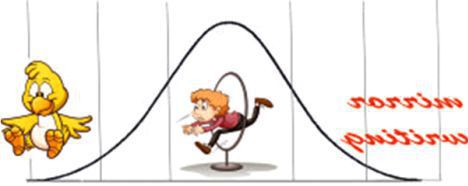SEND: Maybe they are supposed to be like that?
Why
there is no need to "fix" kids with "special needs".
By Dr Shelley Johnston: Dyslexic, doctor, home-schooling mother.
If I am going to have a rant, I will say that I
don't see anyone classifying children as "SEN" because they lack the
extraordinary physical energy and courage of my next-door neighbour's son. In
comparison to him, many other children are frankly pathetic. I will say that I
don't see any children being "statemented" because they lack the
ability to handle animals the way my childminder's son can pick up anything
from a preying mantis to a chicken and it appears to become tame. Nobody sighs
and says "Never mind, dear, we can work on it," because they can't
write backwards perfectly, as though in a mirror, like my daughter.
But do you know what? When I am old and sick, if I
have a heart attack at 3.00 am, I really hope I find someone in A&E who was
like my neighbour's son as a child, because they have the energy to still be
firing on all cylinders at three o'clock in the morning.
One day I WILL finally persuade my husband that a
large portion of our household income needs to be spent on horses, and if one
of those horses gets colic, I'm going to desperately want someone like my
childminder's son to show up and be able to soothe the thrashing hooves and
snapping teeth as the poor thing tries to kick and bite its own tummy.
If I need an engineer, I hope they can flip shapes
about in their head as easily as my little girl can.
The biggest trouble our children with "special needs" face is
our own short-sightedness; our desperation that they go along with the pack,
fit the mould and jump through all the hoops - the hoops laid out by the
National Curriculum and Ofsted and other well-meaning bodies of people, who
don't seem to understand that Normal Distribution is a bell-curve; that it is NORMAL
for people to be abnormal, that whole populations work by having a balance between
lots of people who are good at one thing and a few who are good at others.

THE BELL CURVE
If we spend all our time trying to narrow the
bell-curve and cut off its untidy tails we will find ourselves up the creek
without a paddle. We not only do our "special needs" children a grave
disservice by teaching them that what they are good at and enjoy is secondary
in importance to the things that they are bad at and hate doing, giving
them the impression, albeit unintentionally, that they have to pretend to be
something else before they are allowed to be themselves. We deprive the rest of
the world of their brilliant talents. We bury our mathematicians, our
architects, our philosophers, our Chelsea Flower Show gardeners, our Einsteins,
our Chopins under a wave of "Yes, dear; that's nice: you can do it when
you have practised your spellings/when you have learned to sit still in
class/when you can remember to put your hand up before speaking/ got your marks
in your SATS (ooh , don't get me started!).
Perhaps they aren't meant to sit still. They can
learn to read standing up, lying down, walking around, or sitting up a tree.
Perhaps being "good" at school, sticking to all the rules and
interacting with 30 children at a time is just exhausting for the child who is
so sensitive that they read the signals of a frightened baby animal. And that's
OK: they are meant to be wriggly, or sensitive, or able to write in both
directions. It's our job to give them space to bloom - whether it's in a
mainstream classroom, a smaller group, a quiet place to hide, or not even at
school.
But it doesn't matter what they need: that's not
what this article is about. It's about how we look at our children, because
that is how they look at themselves. Do we feel sorry for monkeys because they
can't swim, or do we let them climb trees?
PS Of course we have to buy a life-boat as well,
because we are 21st century parents with a pathological aversion to risk, and
even though the monkey lives in a dry jungle we have to cover all our bases,
but more on that some other time...

